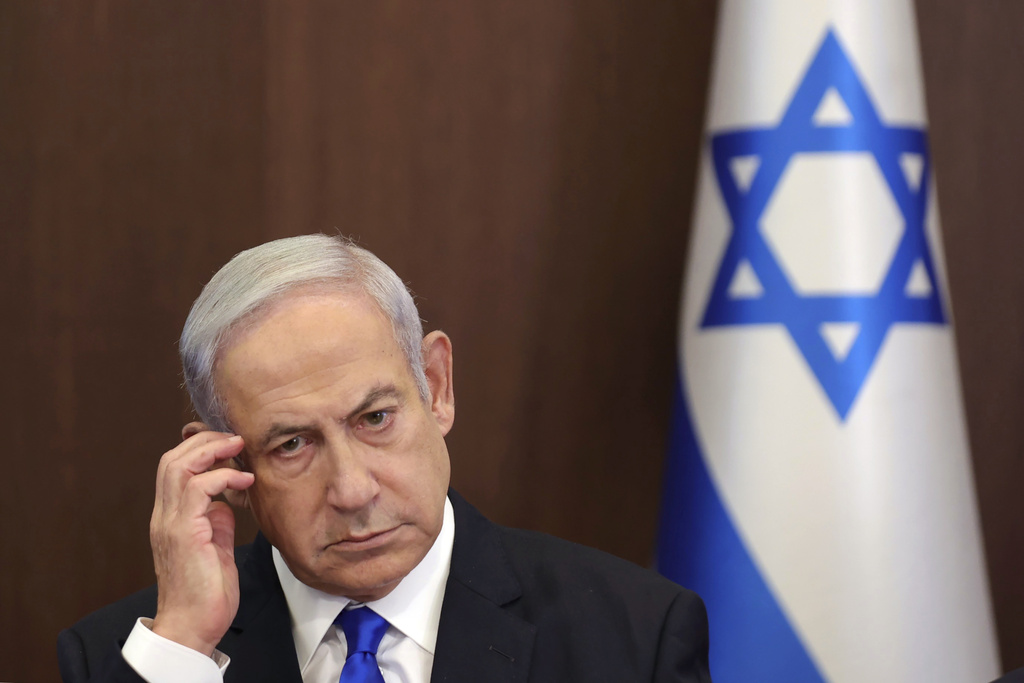More specifically: After fighting a war mostly against Iranian proxies, does Israel go for the kill shot now and press even further – continuing to press alone – and decimate the head of the snake by taking out nuclear sites and oil fields?
Middle East expert Joel Rosenberg, in an appearance on Washington Watch Monday, said he believes the answer will soon be yes.

“We are at the most dangerous moment in the war right now because Netanyahu and his team believe that this is probably the moment," said the best-selling author to host Jody Hice. "That's what they're debating internally: Is this the moment to go for a decapitation strike to take out the Iranian terror leadership, as well as [to] neutralize and destroy Iran's nuclear weapons facilities, and probably destroy the oil refinery capacities of Iran?”
What will Netanyahu decide? “I think he’s going to do it – and I think it’s going to be messy,” Rosenberg stated.
Though none go with me …
More than likely, though, it will come without assistance from the U.S. and other Western nations. President Joe Biden has said the U.S. will not support a strike against Iran’s nuclear facilities. Biden is said to prefer a response to Iran of sanctions and diplomacy.
Great Britian and France have already enacted weapons embargoes against Israel, meaning no more sales of weapons from those countries. Armed forces from the U.S., Great Britian and France worked with Israel to propel Iran’s attack of more than 180 ballistic missiles on last Tuesday, The Jerusalem Post reported.
The Biden-Kamala Harris administration has not gone the embargo route, not officially. Instead, according to Rosenberg, they slow the release of promised weapons and ammunition to leverage those supplies with hopes that Israel will quit while it’s winning the war.
“They use the words 'permanent ceasefire,' 'accepted ceasefire,' '21-day ceasefire.' It all is tantamount to surrender – and the bottom line is [Netanyahu] has decided to not listen anymore. He’s listening, but he's not agreeing with either President Biden or Vice President Harris,” Rosenberg noted.
Israel’s path to peace
The U.S. calls for a ceasefire put tremendous pressure on Netanyahu, Rosenberg added – but ultimately, he believes eliminating Iran’s war-making ability and the funds to rebuild it will bring peace to the Middle East.
 “Six months from now, a year from now, [we] will be chatting and saying, ‘Oh my gosh, Israel really is the dominant superpower in the region, bar none.’
“Six months from now, a year from now, [we] will be chatting and saying, ‘Oh my gosh, Israel really is the dominant superpower in the region, bar none.’
“I think the Saudis will then make peace with Israel. If we destroy the Hezbollah terror infrastructure, we may see the Lebanese people and army, the troubled Lebanese government, rise up and maybe even overthrow the rest of Hezbollah and even want a peace treaty with Israel,” Rosenberg continued.
While that path infers ambitious goals and timeline, Rosenberg contends it would lead to peace, security and spiritual growth for Israel.
“That’s what I’m praying for. That’s what all Evangelicals should be praying for," he concluded. "But it’s going to be a hard road ahead – especially if the United States keeps cutting Israel loose.”







